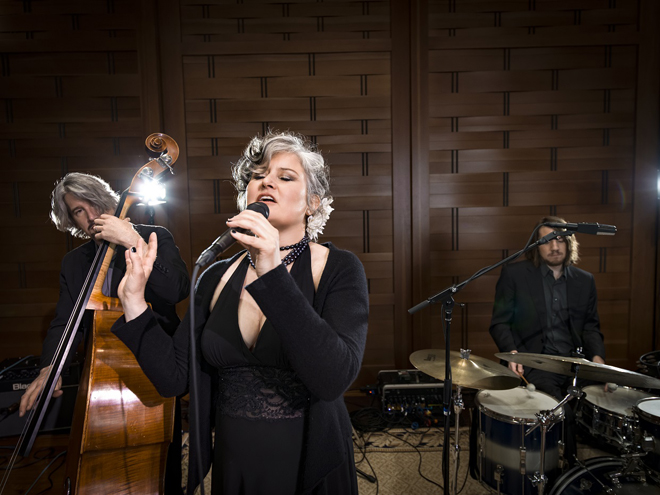 Video Feature & Web-Exclusive Interview
Video Feature & Web-Exclusive Interview
Musician: PAULA COLE
Video: “God Bless the Child”
Songwriters: Billie Holiday and Arthur Herzog, Jr.
GRAMMY WINNER PAULA COLE ON HER NEW ALBUM, BALLADS, AND HER UPCOMING TOUR
God Bless The Child – Paula Cole 2017 from AIA on Vimeo.
Grammy winner, Lilith Fair star Paula Cole re-emerges with a stunning new album
and a fresh perspective. Turning 50 in April 2018, Cole is reflective and grateful, back on tour in support of her acclaimed double-CD Ballads, and celebrating the 20th anniversary of the album that put her on the map, This Fire.
In interviews, it’s clear that Cole’s time away from the spotlight has served her well. She’s got a sense of her bigger picture now, and can talk with authority, wit and perspective about the ever-evolving music business as easily as she can discuss feminism, gardening, healthy living, parenting and social activism. She’s a three-dimensional person who has finally found her North Star as she turns 50.
A grounded adult and a woman of substance, Grammy winner Cole is celebrating her re-emergence as a smart, funny, seasoned performer, a mother who took time off to do it right, a daughter who is honoring her father with this current collection, a teacher who is giving something back (as an active professor at Berklee College of Music), including running her own label. She’s deep but doesn’t take herself too seriously, and she’s somehow survived the pop star/Lilith scene with solid footing. It’s a breath of fresh air in a noisy world, and a reminder that family and community can create a far richer life than the relentless pursuit of celebrity.
Her current U.S. tour, which resumes early this year, features Cole on piano and vocals, Chris Bruce on guitar and Ross Gallagher on upright bass. It’s a stripped-down format that lets the audience in. Whether she’s singing her pop/rock smash “Where Have All the Cowboys Gone?” (from her Best New Artist Grammy-winning album This Fire) or delivering a riveting jazz/folk cover of “Ode to Billie Joe” (from Ballads) her voice is instantly recognizable—soulful, emotional, comforting and timeless.
Cole’s impressive biography speaks for itself. You can see her upcoming tour dates across the country on PaulaCole.com, including visits to Massachusetts, Maine, Florida, Colorado, Utah, Pennsylvania and New Jersey.
We talked with Paula Cole about her passion for songwriting, her eternal love of jazz, her commitment to music education and social activism that embraces social, political and spiritual themes, finding her woman voice, her need to play to a live audience, and her desire to quench the soul that longs for change.
PAULA COLE Web-Exclusive Interview
with M Music & Musicians magazine publisher, Merlin David
You started as a jazz singer. Is this your way of paying homage to your first love of jazz and folk?
Nearing 50, I needed to finally make my version of a jazz album. I needed to cross it off my bucket list. I’ve loved jazz for so long. I started professionally as a jazz singer, in clubs throughout college. I wanted to be a female Chet Baker, improvising vocally over chord changes. I was so blown away by his improvisation—his ears, and the way he would sing inside the chord changes—so musically. Of course I wasn’t anything like Chet Baker, and things didn’t actualize as I’d hoped. Thank goodness. (Laughs) One of my favorites of his is “Do It the Hard Way.” It’s a vocal solo from God. It’s amazing.
How did this new album Ballads evolve?
Though I was offered two jazz record deals over the course of my career and I’ve recorded with several jazz legends, I still hadn’t recorded my own album. That needed to be rectified. And I longed for it to sound the way I heard it in my head and heart—as a rootsy, folksy album that was guitar-based, fusing jazz with soul and folk roots, as if it were recorded at Muscle Shoals. I wanted to blend genres. I wanted a Billie Holiday song next to a Bobbie Gentry song. I wanted to gently touch upon social-political themes. I wanted to sing songs that are beautiful—that protest and empower. This wasn’t going to be another fabricated syrupy slick standards album. It was going to be shaped with rougher sandpaper.
What made you want to dedicate this album to your father, Jim Cole?
I learned from my father, Jim Cole, who played his heart out in the living room, going from Duke Ellington’s “Sophisticated Lady” at the piano to folk ballads to improvised blues guitar to country banjo. My Dad played several instruments and was a professional bass player in a polka band. He had great ears, appreciated music over so many genres. He taught me music was self-made, joyful, unifying and a way to express feelings.
It’s an amazing collection of songs—spanning a wide landscape.
I recorded 31 songs over five days. I wondered how to release all that music—like Miles Davis’ Prestige recordings from the 50s (one session, four albums). I decided 20 was a lovely round number, and a double album was just the recipe for this short-attention-spanned digital age. I listened to the roughs over and over in shuffle play as I did chores around the house, making notes when heads and tails sounded inspired. The album needed to be a blend of its folk and jazz roots. It needed to honor some of the masters whom I worship. These 20 just coalesced. There are still eleven waiting in the coffers.
Is there one song that you are glad made it onto this album?
I’m so glad for “I Wish I Knew How It Would Feel to Be Free” by Dr. Billy Taylor. It is essentially gospel and it elevates people’s hearts wherever it’s played. “I Wish” was my doorway to Nina Simone. I am listening to her so much now. She inspires me deeply with her honesty and piano playing. Also I’m glad for “The Lonesome Death of Hattie Carroll” by Bob Dylan. In a way, it’s a Black Lives Matter song—it’s just as relevant today as it was on release day. These two artists beautifully symbolize the cross-pollination of genres I sought on Ballads.
Do you think it’s important for musicians to write songs that have greater social value—in hopes of eliciting change?
Absolutely, I do. I think it’s vital, and it distinguishes artists from the fray. Nina Simone. Miles Davis. Those who take on the responsibility of considering what music can do for society, those artists take it on, and they provide a deeper voice for their social and political convictions—and hopefully for healing.
Which of the songs you’ve written have offered that healing?
I tried for Amen [1999], the whole album, to be a social-political-spiritual statement. I was influenced by Bob Marley and definitely Marvin Gaye on that album. Lot of people couldn’t see me as anything but a young, white female. They couldn’t handle that my influences were what they were. Or that I dared to use the word “g-o-d.” (Laughs) I know it’s a mystery. I accept that. I’m not religious. I wasn’t raised with religion. But I’m spiritual, and I use that word to refer to mystery. The whole album was intended to be of movement to that. And I definitely had other songs since. I feel the need to do it again—perhaps even another whole album.
Why would you like to record another album like Amen?
There is danger in staying silent. Ironically, it’s loud if you stay silent. I still sing my song “Amen” at shows every night. There are some pretty intense lyrics in there. I refer to the Republican witch-hunt coup, and Malcolm X, and it’s pretty clear which way I swing. The lyrics in hip hop have been blending social, political and spiritual for decades, and that moved me in the 90s—KRS-One, Spearhead, and so many others—amazing lyrics. They’ve been on the forefront of this.
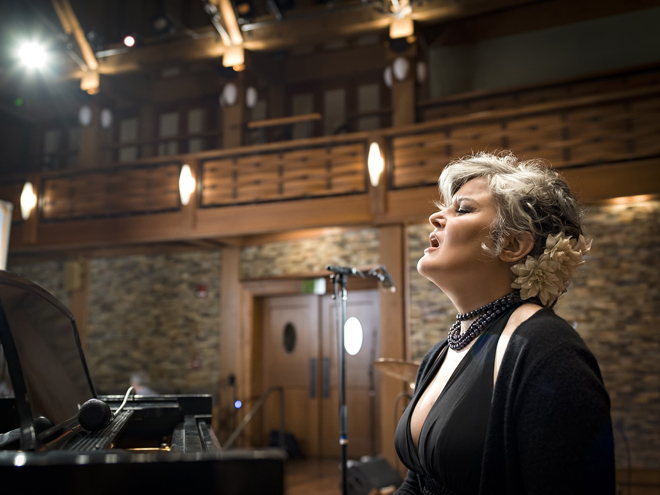
Sounds like you too grew up in an era where there were fewer music boundaries.
There is a political undertone to the songs I choose. It is part protest album (laughs), and I wanted to blend genres. I have always struggled with the question, “What kind of music do you make? What kind of artist are you?” I’m such a blend of genres and that’s how I learned. I learned from my Dad that a musician plays many genres, and is inspired by many musicians and artists. Gen Xers and above were able to catch the tail end of independent radio before the Telecommunications Act of 1996 really started homogenizing what radio stations in America play. It became increasingly categorized.
There’s a danger in doing that.
They started categorizing people so they could advertise to them. As a result, the music gets increasingly labeled. Now, Apple Radio will suggest music based on what gender of artist you are listening to. If you put on Paula Cole, they basically refer only female musicians—which I find so depressing. Spotify does that too. It gets narrower and narrower. With R&B, when Elvis started singing rock ’n’ roll, they started delineating it by race, or categorize by gender, and age. We just don’t need that. I think we need to talk about it and be conscientious of that—so we can break it down and mix up the music. I think it’s so healthy.
And your influences?
I sang along to Aretha’s Gold every single day. She was my greatest vocal teacher. And her piano playing—she’s such an unsung hero. I want people to hear my music and hear all these influences. Peter Gabriel is probably more obvious because I spent so much time with him. Kate Bush was a producing artist, and such an original.
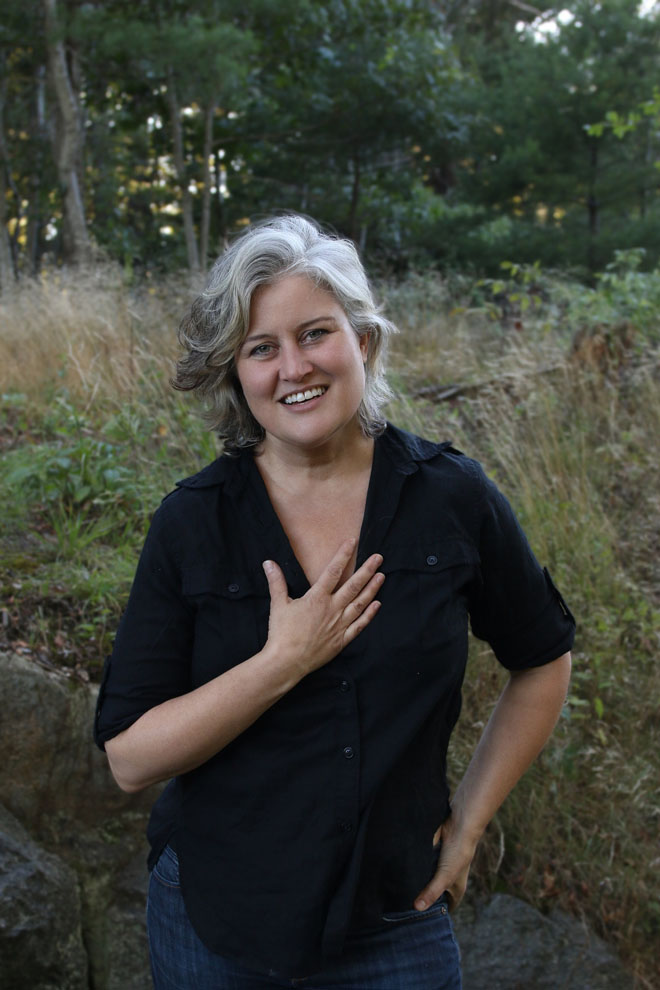 Who inspired you write songs?
Who inspired you write songs?
Probably my two greatest songwriter influences are John Lennon and Joni Mitchell. They were brave—ruthlessly autobiographical. They were eccentric—they braved change when their hearts told them they must—even to the point of losing audience. But look at the legacy of the writing. Recently I’ve performed some John and Joni shows of entirely their catalog to honor their influence on me and the world. Kate Bush and Peter Gabriel were huge for me. Dolly Parton and Bob Marley. Their writing is uniquely them—autobiographical.
Tell us a little about your creative process.
My process changes. Most frequently it’s an intuitive feeling in my body that gets me to the piano, precipitating an open-minded, autobiographical exploration. But sometimes I work at it from other angles—melody first, lyrics first, groove first, a production mindset thinking of the overall sound. I like to draw inspiration too from alternate sources like art, poetry, literature, social-political activism.
What kind of poetry or art?
I love Rumi in its classicism, and making God sound like a lover—making the spiritual to be tactile and sensory. But I also love more open poetry like E.E. Cummings. I try sometimes to start just with words, and it’s helpful being in a poetic frame of mind—free associative. That’s how “Where Have All the Cowboys Gone?” was written—as words only. I try to approach songwriting from different ways. Reading poetry is a lovely way to embark into lyrics first.
How was “Where Have All the Cowboys Gone?” written?
I was listening to XTC from England, and I loved their wit, humor and catchy choruses. I thought—we don’t hear enough of humor and wit in a catchy pop tune from women. I’d like to do something incorporating that. That thought happened before I wrote the song. Then I was living in San Francisco. I had three roommates and I was living on a burrito a day—half for lunch and half for dinner—$2.15 a burrito. I put every dollar into my home studio, and was dedicated to my writing classes and churning out music. Being in that mind space of XTC, I wrote that on the page—lyrics first. But I set it to a rumba feel. It had no bridge and the rumba feel—which was weird for people and they didn’t get it all.
When did you get back to it?
It languished in the coffers of my songwriting demo tapes for several years. It niggled at me, and I realized it needed a facelift. So, I changed the groove. I used Ringo Starr’s outro on the “Sgt. Pepper’s” reprise. I sampled it and looped Ringo—this was just for the demo. We didn’t use Ringo, or I would have been sued. (Laughs) It was just that wonderful straight-up soulful rock beat, and I added the catchy background vocals, and added a bridge, and suddenly everybody was hopping up and down about it. The song was there but it just needed a production shift. But to this day, people are confused. Some people take it very fundamentally, and some love the wink wink nudge nudge. There is some melancholy woven throughout—general examination, some humor, some sarcasm and irony. But yes, before creating the song, I thought there was a need for that.
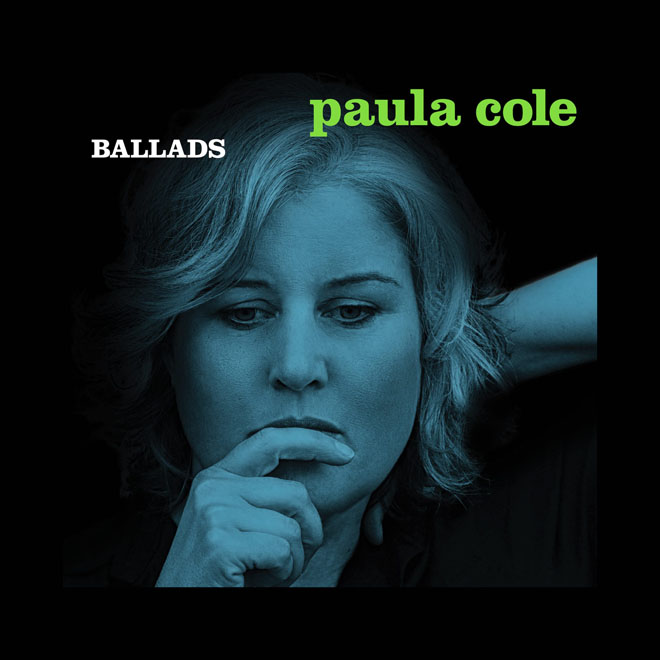 Really? A burrito a day?
Really? A burrito a day?
I lived in San Francisco for a couple of years, and those were the humble years. I was in my early 20s. I didn’t have the burdens of midlife. I didn’t have motherhood. I didn’t have a kid to worry about and work for. I was solely focused on music. I was so dedicated.
What songwriting tip would you like to offer?
I think keeping a journal is incredibly helpful—not only to the songwriting process, but to individuation, to self-healing and growth. Keeping a journal is like dialoguing with one’s subconscious. You find your thoughts, your feelings, your song seeds. I notice that when I do journal consistently, I’m a little bit more psychologically healthy, and my life is going better.
Do you physically write on paper, or just write on the computer?
Maybe that’s the problem. In the past, I’ve always written, and kept the books. They last on the shelf. You can pull them out a decade later and reflect on who you were and how you’ve grown. But I guess my muscles for physical writing have atrophied. (Laughs) I don’t do it as much, and I fly on the keyboard. So maybe I should write them out in a book and keep them. There’s something so old-fashioned and lovely about physically writing—not using lined pages and doodling. It’s just really healthy to be in your right-brained space.
Tell us one experience where something unique inspired you to write a song.
There have been Nor’easters in my home of Cape Ann that have been devastating. I grew up with fisherman families that lost everything in storms. There is a statue in Gloucester, Massachusetts (home of The Perfect Storm) of a fisherman’s wife with her two children as she watches her husband go to sea—never to come home. That inspired me to write “Gloucester Harbor Shore” and I think it captures something real.
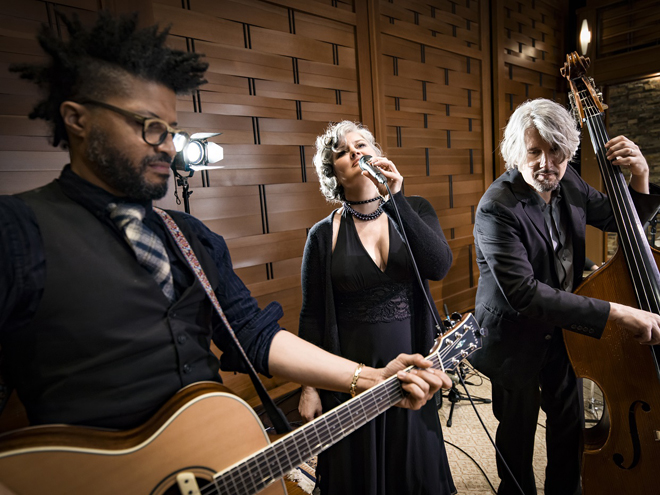 How did Berklee College of Music inform your music?
How did Berklee College of Music inform your music?
In the past, as a student, I did not take a single songwriting class. At the time, it didn’t feel right. Writing was my therapy. It wasn’t something I wanted to dissect critically. My process was just too personal to fit into the structure of an academic course. Finding my songs was my salvation and therapy. And the faculty—were all men. Nearly all the jazz standards I had been singing were written by men. I needed to walk away from all of that and find my own creative woman voice.
Is music education important for upcoming musicians?
Of course what we do can be done without a traditional education. Some of the greatest minds are self-taught. But with the privilege of an education, there is a deepening and humbling that occurs—largely at 18-23 years of age, with mentors (both faculty and fellow students). It is a time to be essentially free of a job, the obligations of one’s adult years. It is a time to be shaped, to find your goals and work ethic. Upon graduation, you show the world you finish what you start. I tell my students to build their catalog now. Precisely now, before they enter the work world or have children, and therefore less time. I try to inspire them to care about the world, to write beyond love, but also for the social-political and spiritual. I want them to have pride in themselves, to learn techniques, yes, but to connect with their own subconscious for healing, and to then heal the world some. It’s not too grandiose to discuss that. It’s absolutely necessary.
Do you feel you’ve written the song you were born to write?
I guess I don’t place such importance on any one song. I see the world doing that with some of my songs. So, I guess I reject it because they are all snapshots in time. They are all moments of me. And that’s all they are. I have more in me that I feel is manifesting again. I have fallow seasons. I try not to be judgmental about it or beat myself up too badly for having fallow seasons. But it’s important to have that. You nourish your psyche in other ways, and it comes out in the writing later.
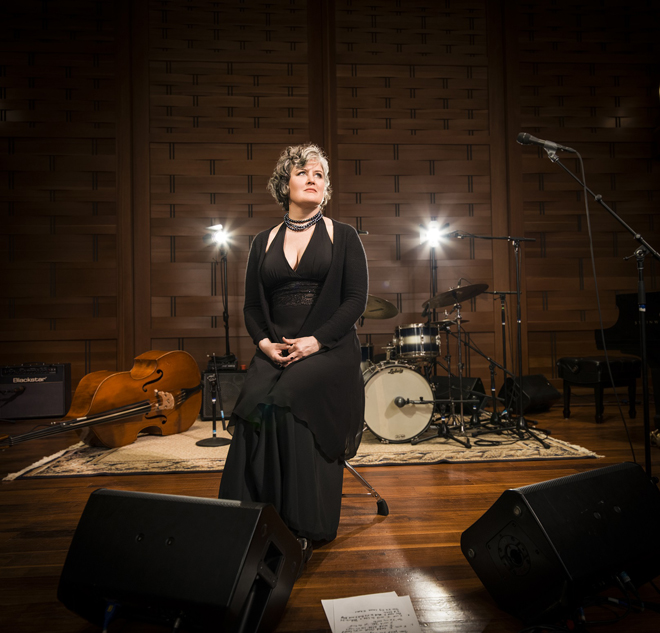 Which instruments/equipment can you not live without?
Which instruments/equipment can you not live without?
A piano. I’m always trying to be a better piano player. Nina Simone inspires me, deeply. I wish I could be freer and solo more as a pianist. I am working on that. I’m so grateful Baldwin and then Yamaha Pianos have endorsed me for many years. The acoustic piano is a bulky, impractical mothership in danger of becoming a threatened species. Fewer and fewer music venues carry real pianos. They think the newest keyboard technology is so fabulous. I think that’s a crying shame. The piano is a most beautiful and important instrument. It is a percussion instrument. It is not meant to be digital.
I’m sure the new generation doesn’t see the piano as a percussion instrument.
This has to change. We have to educate people again about the importance of a piano. They are throwing pianos away—giving them away for free. Jazz clubs, blues clubs and theaters don’t even have a real piano anymore. They’re so proud of their newest digital thing—which never sounds good. It’s so frustrating. We have to educate people. As a touring artist, a lot of venues don’t carry pianos anymore. You have to rent a real piano. You, as an artist, are penalized the cost of $1,000 to rent a really good piano and have it tuned. Theaters should have a good piano in their back line.
Who are the Top 5 Musicians who inspired you to become a musician?
- 6: My Dad—Jim Cole, and Peter Gabriel, Joni Mitchell, Kate Bush, Aretha Franklin and Miles Davis.
Top 5 favorite albums of all time?
Blue (1971) – Joni Mitchell
So (1986) – Peter Gabriel
Aretha’s Gold (1969) – Aretha Franklin
Hounds of Love (1985) – Kate Bush
Kind of Blue (1959) – Miles Davis
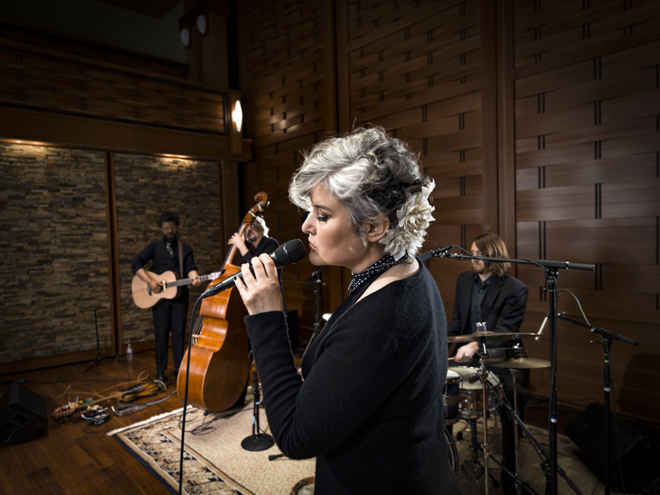 Do you remember the first time you heard one of your songs on the radio?
Do you remember the first time you heard one of your songs on the radio?
“Where Have All the Cowboys Gone?” was going electric. I remember hearing it from someone’s Walkman as they walked past me on a Manhattan Street, and then on the radio from someone’s open car window in traffic. Those moments really gave me pause. There are no words.
What PRO (Performing Rights Organization) are you with?
I’m with BMI, and frankly I wish they’d reach out more. They have never reached out to me, so I have nothing to say about that. I’ve tried contacting them through a contact I had. No response. It’s kind of ridiculous, especially after there have been millions of radio airplays of my songs.
Please tell us a “pinch me” moment when you found yourself saying, “Wow, this is really happening to me!”
Being a profound fan of Peter Gabriel, then flying to Mannheim, Germany, on Halloween of 1993, having one rehearsal of just one song with Peter (“Don’t Give Up”) and then being thrown out in front of 16,000 Germans that night—that was pretty intense. We filmed the Secret World Live video a few days later.
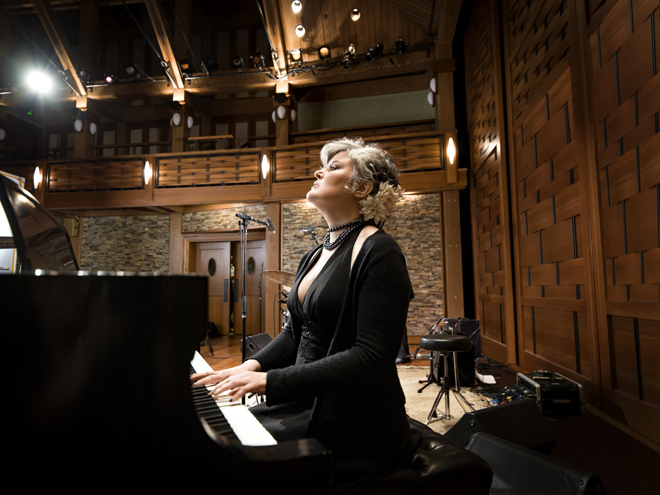 How did the idea for the song “I Don’t Want to Wait” come to you?
How did the idea for the song “I Don’t Want to Wait” come to you?
I felt my grandfather was going to die. He was in my mind and in my heart. I was reflecting on his relationship with my grandmother, their relationship with my Dad, how experiences run through family lines. There were effects from his injuries in WWII (what we now call PTSD) and there was unhappiness in his marriage that trickled down into our lives. I didn’t want to repeat the unhappiness. I was thinking about my mortality, what I needed from my own lifetime, all while feeling empathy for my grandparents and wanting to craft a big melody.
It’s been 20 years since you won the Best New Artist Grammy, along with seven Grammy Nominations for This Fire. Did that help you or create more pressure?
When they announced the Grammy nominations that year I was just home from performing for the troops in the Persian Gulf. I was touring non-stop. I was in a self-preserving, Chauncey Gardiner bubble. Add to it that I’d never even watched the Grammys. I was dazed and a little traumatized by the huge leap in media attention—being a high introvert. The Best Producer nomination meant the most to me—that was the most difficult hurdle. I was proud of the work, and was stunned to learn I was the first woman to solely produce and be nominated for that category. I learned many lessons from the experience, especially the night of the awards. The most important was to prioritize my personal life over my career, to seek a healthy balance.
Were you the first woman to self-produce and be nominated?
I was the one who was their own producer without anyone else. Before me was Janet Jackson, but she had Jam and Lewis. And Mariah Carey had Walter Afanasieff. But I was sole producer. It was nice knowing I did this by myself, and I was the first woman to be nominated as sole producer. After they made the announcement, people ran up to me to tell me that I was the first woman. That’s when I realized—that’s why it was so hard. (Laughs) That’s why people were so weird about letting me do it.
Best advice someone has given you.
Unless you are fortunate and rare enough to have friends and family with real careers in the music business, as you inherit one yourself, you are left to navigating the bizarre, mine-filled landscape yourself. Even with management, business management, lawyers, you may not know how to navigate because you may be used precisely by the team you’ve edified. I wish I had called up Stevie Nicks when she so lovingly gave me her phone numbers. But being Chauncey Gardiner I lost them. Peter Gabriel told me he hires and fires people himself. That makes sense and is something I find spiritually right, and try to do the same. And by observing Peter’s sharing of the spotlight, creating buoyed team spirit, I love to honor my band, give them room to solo and stretch and be th
emselves.
Best advice you’d like to give upcoming musicians?
In a motherly spirit, I tell my students to write their own content, to own the intellectual property they sing. Always think about giving back. The true spirit of music is beyond our understanding and is truly a responsibility for healing, elevating of consciousness. Write about more than love—take on the social/political mantle begun by our progenitors (Billie Holiday, Woody Guthrie, Bob Marley, Marvin Gaye, Bob Dylan, Joni Mitchell) helping people through music. One must have several skill sets as a singer-songwriter today: entrepreneurialism, writing, performance, ideally some self-production skill, curiosity to learn. Exercise wariness around contracts. The old paradigm of the giant record company is increasingly obsolete and unhealthy. Keep your publishing—fan-fund.
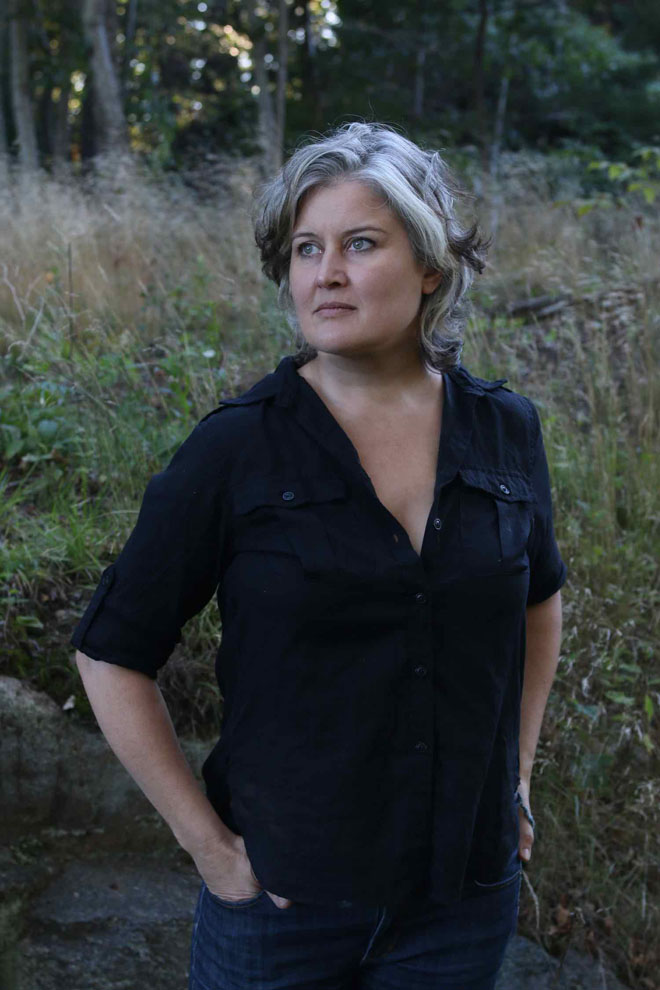
Anything else?
Keep your creativity, your autonomy, your masters, unless you are aiming to be Rihanna and start a fashion line. Most importantly, social-emotional intelligence is the largest element of success. You need to be a good leader and an easy hang in the van if you are to succeed. I give practical music business advice to my students since I don’t feel I received enough myself.
What’s next?
I toured in October and November 2017, a couple of Boston area shows in December and January, then hitting the road again in February 2018. My tour dates are listed and linked at PaulaCole.com. I am determined to get back to touring Europe. It is seriously on my bucket list. I hope my fans there can hang tough. And yes, I’m thinking about the next chapter or two, in regards to albums and hopefully something different, too. There are 11 songs left over from Ballads, and I’d like to do another live album, and maybe an Amen II. (Laughs) I feel something burgeoning. We shall see. My soul is longing for some change.
Where can your new fans get more info and stay updated?
Sign up to my Subscribers Email List for personal notes from me. Tour dates are always on my website.
Facebook: paulacolemusic
Twitter: paulacolemusic
Instagram: paulacolemusic
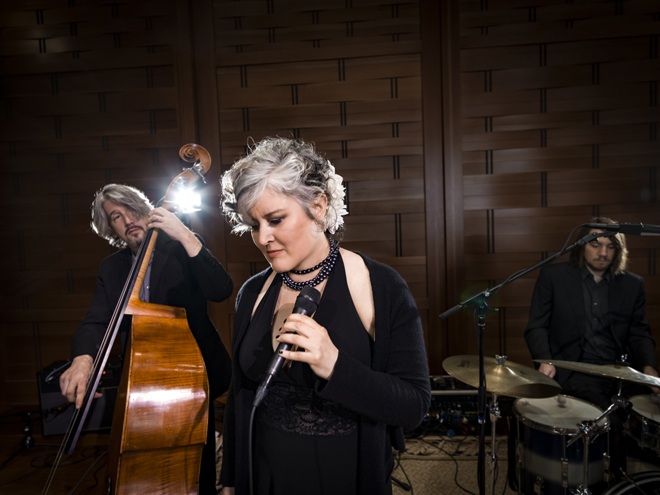



comment closed